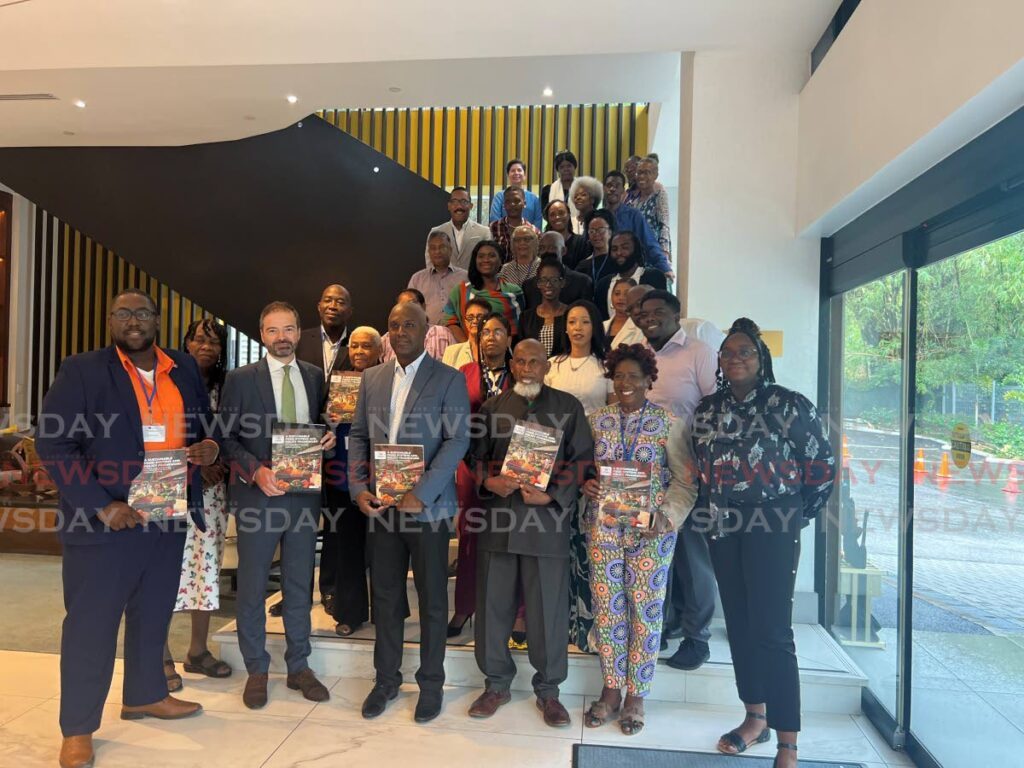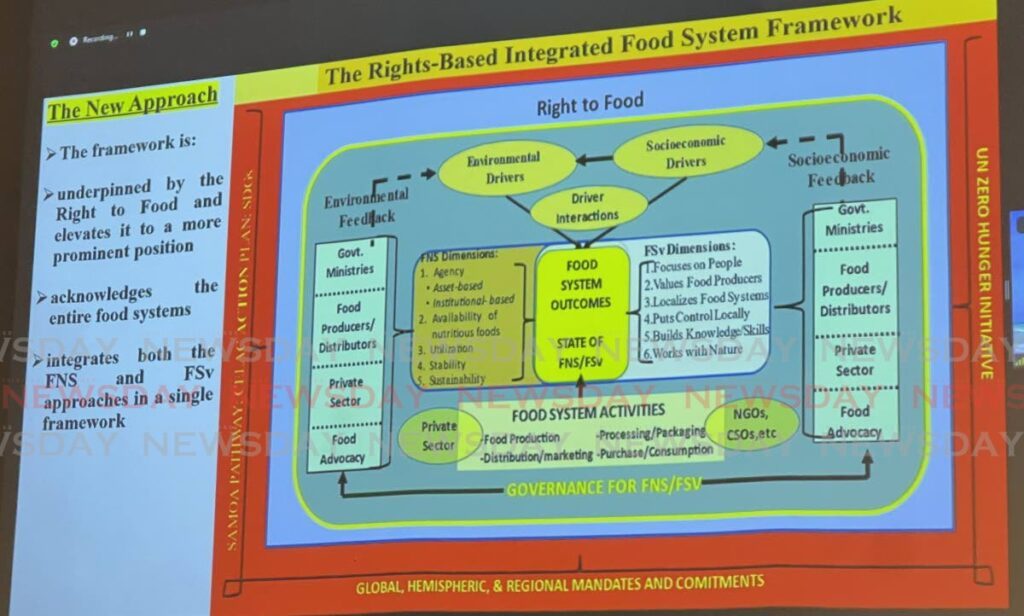Experts: Food security ongoing issue in Caribbean

Two men who have over 30 years of experience in food security in the Caribbean have developed and published a framework that will enhance the ability to provide affordable food in selected Caricom countries.
The launch of the framework took place at the Caribbean (Civil Society) Consultative Working Group meeting on June 4 at the Brix Hotel, Cascade.
The launch is part of a wider European Union-funded project entitled Enhancing Cariforum’s CSO Capacity to participate in National and Regional Development Programming and Policymaking, carried out in partnership with the Caribbean Policy Development Centre.
One of the authors of the framework, Dr Tigerjeet Ballayram, said he and Prof Fitzroy Henry were very enthusiastic and spirited about doing and presenting the study.
Presenting via Zoom, Ballayram said there are several challenges to food and nutrition security in the Caribbean and presented four lines of action to address them.
“We focused heavily on advancing a new framework to replace the food and nutrition security that was used for the past 20 years. We also wanted to elevate the issue of nutrition security as a policy priority.
“We advanced the idea that a food replacement programme with nutrition security and engagement of small and medium scale food producers are major components and a policy framework that prioritises several key policy areas.”
In the new approach, the Rights-Based Integrated Food System Framework, the framework is supported by the right to food and elevates it to a more prominent position.
It also acknowledges the entire food system and integrates both the food and nutrition security and food sovereignty approaches in a single framework.
In Ballayram's presentation, some of the outlined areas for advancing food and nutrition security and sovereignty included promoting the right to food, promoting good governance for food and nutrition security, strategically managing food imports in line with nutrition security and increasing domestic production capacity (Vision 25X2025), through which heads of Caricom committed to lowering the region's food import bill by 25 per cent.

More areas outlined were the food and nutrition security and sovereignty and development agenda of 2030, especially sustainable development goals one, two and three (poverty, food and nutrition security and health/non-communicable diseases (NCDs)), the sustainable increase in agricultural production and productivity with increased access to healthy foods, engaging and supporting small and medium-scale food producers and lastly, building resilience and sustainable livelihoods in rural economies.
Caricom programme manager, agriculture and industry, Shaun Baugh said this framework marks a step forward in the collective understanding of the region's food security challenges and a commitment to finding solutions.
“This provides an avenue to assist in ensuring that we have access to safe and affordable food and ensuring the population effectively utilises the nutritious value in the foods that are available in the region.”
Baugh highlighted the major challenges the agriculture sector faces and in the Caribbean's being food-secure – high food prices, economic health, a heavy reliance on food imports, climate and extreme weather and NCDs.
“The recommendations from this publication are real and practical. It is in keeping with what is required by governments to be implemented."
Baugh said since 2020, seven food security and livelihood surveys have been done throughout the Caribbean and have revealed several results, some being cause for concern.
“There has been a 17 per cent improvement in the last year in food and nutrition security. However, it also revealed that 43 per cent of the population throughout the Caribbean is struggling to meet basic food needs."
President of the Trinidad Unified Farmers Association Shiraz Khan said in the 1990s he sat with Dr Patrick Antoine, a consultant, economic adviser and trade and finance negotiator, in many meetings talking about the Anti-Dumping Act, which has borne no fruit.
Khan claimed, “We are eating dumped food!
“If we are eating dumped food, how can we talk about food and nutrition security?”
Khan, who is also a farmer, said during the Christmas period he only sold 25 pounds of meat because, “We are importing dumped meat in this country and selling it for $18 a pound.”
Khan also recalled the Caribbean Region Negotiating Machine (a strategy for various external trade negotiations), on which he said millions of dollars were spent, but today: "Nothing. We are still getting dumped food."
He concluded, "If we want to be serious about achieving this document, we need to be serious.
"We have to change, we must not be followers in the Caribbean."

Comments
"Experts: Food security ongoing issue in Caribbean"